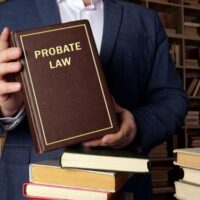Disputes Over Non-Probate Assets

When a loved one dies, their estate will likely have to go through probate. Probate assets include any possessions owned solely by the decedent, or deceased person. These assets must go through the probate process before being distributed. In contrast, non-probate assets are those that transfer directly to a beneficiary or co-owner and are not part of the estate. The probate process is public and can take time because it allows individuals and creditors to contest claims and ensure fairness.
But what happens if an asset was mistakenly left out of the estate? They can be contested under certain circumstances. Although these assets bypass the formal probate process, they are still subject to legal challenge if valid grounds exist. Here is what you need to know.
Probate vs. Non-Probate Assets
When someone dies, their assets generally fall into one of two broad categories:
- Probate assets: These are assets owned solely by the decedent and do not have automatic transfer mechanisms. They must go through the court-supervised probate process, through which the decedent’s will is validated, debts are paid, and assets are distributed according to the will or state law.
- Non-probate assets: These are assets that avoid the probate process because they already have a legal mechanism in place to transfer upon death. Examples include assets placed in a trust, retirement accounts with a named beneficiary, or real estate held jointly with the right of survivorship. These may include life insurance policies and retirement accounts.
How to Handle Non-Probate Assets
Even though non-probate assets don’t go through the same public probate process, there are situations where a challenge is still possible:
- If a beneficiary designation was made under undue influence, or if the decedent lacked the mental capacity when making the designation.
- If a transfer contradicts a prior legal agreement, divorce decree, or community-property rights.
- If the title or ownership structure was changed improperly (for example, real estate meant to go into a trust was never properly transferred).
- If the decedent’s intent is clearly different than what the transfer documents reflect—and a court allows evidence of that intent to override the default non-probate mechanism.
Because non-probate transfers rely on contractual or ownership mechanisms, disputes require proof of mishandling of those mechanisms, not simply disputing a will.
How to Minimize Disputes
- Review all your beneficiary designations on retirement accounts and life insurance and ensure they reflect your wishes.
- Make sure ownership structures for joint assets are intentional.
- Ensure your estate plan aligns across all documents and ownership/beneficiary designations.
- If you are an heir or potential beneficiary and you suspect something went wrong, speak with an attorney promptly.
Seek Legal Help
Sadly, a death in the family can bring about conflicts, especially when money and assets are involved. You may wonder how to appropriately handle these disputes.
Get the legal help you need from Fort Lauderdale probate litigation lawyer Edward J. Jennings, P.A We know these conflicts can be highly emotional, but we know the laws and can help you handle them quickly and effectively. Schedule a consultation today by filling out the online form or calling 954-764-4330.
Source:
trustandwill.com/learn/contesting-non-probate-assets
